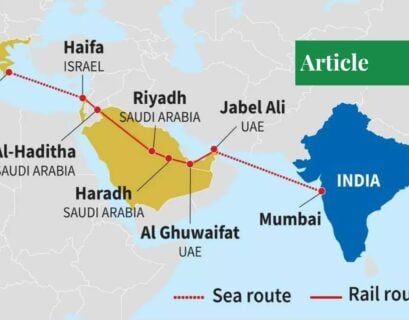Introduction
With the assistance of the international community, Bosnia has come a long way in its struggle of rebuilding itself. However, this progress would only become prominent when Bosnia takes this responsibility on itself to work for the everlasting peace process. The institutions in Bosnia would never be able to deliver efficiently and work properly if the Bosnian people do not hold them accountable.
The capacity of potential candidates to either enter into agreements with the EU or negotiate with it is limited by the lack of sovereignty which then limits a state’s readiness to take up serious reforms. The European Union, in order to provide temporary relief to the problem of political blockades, focuses on the technical issues yet the realistic accession matter cannot be substituted by such temporary things.
With the absence of this accession perspective, the normative power that the EU holds in states will continuously degrade and this would lead potential candidates Bosnia (now a candidate) and Kosovo to be left with no other option but to use unilateral measures to solve their own existing issues.
Bosnia’s Path to EU Candidacy
From co-chairing the Dayton Agreement to acknowledging Bosnia’s potential EU membership, European Union has inevitably played a crucial role in Bosnia’s security since the break-up of Yugoslavia. Bosnia’s potential candidacy for European Union membership was realised during the Thessaloniki European Council Summit, and the country has come a long way since.
The European Commission granted the candidate status to Bosnia on the account that it fulfilled the democratic, economic, socio-legal as well as administrative conditions laid in the Copenhagen Criteria. In addition, the Western Balkan state had to fulfill conditions of the ‘Stabilisation and Association Process’ so as to secure the candidate status.
The rationale for granting candidate status to Bosnia at this juncture stems from the ‘European Union Enlargement Policy’ that prioritises the integration of Western Balkans into the EU so as to ensure stability in Europe.
The European Union Enlargement Agenda
“Wind of change is once again blowing through Europe and we have to capture this momentum; we have to push for this momentum. The Western Balkans belong in our family and we have to make this very clear” – Ursula von der Leyen (President of the European Commission)
Western Balkans refers to the region in the heart of Europe encircled by European Union member states. Owing to its geostrategic significance, stability in Western Balkans is of utmost importance to the European Union. As a result, the Western Balkans region is prioritised by the EU Enlargement Policy, also termed the European integration process, which aims to integrate more states into the European Union.
Although the integration process is a complex one, experts argue that the drastic changes in Europe’s security architecture post-Ukraine invasion have catalysed European Union’s integration process, in a bid to contain Russia’s expansionist agendas coupled with the threat of Balkanization in the Western Balkans due to increasing Russian influence.
The recent move to grant Bosnia candidate status is a manifestation of the response to this threat. However, candidate status to Bosnia and Herzegovina comes attached with the burden of ‘high expectations’ that Bosnia’s elite must fulfill, as claimed by Oliver Varhelyi, the EU enlargement commissioner. The 14-point Copenhagen Criteria followed by 35 chapters of the EU acquis (accession negotiation process) must be addressed by the consociational state so as to secure a permanent place in the European Union.
The future of Bosnia seems bright as political leaders of the state have shown willingness in bringing the requisite reforms. On January 25, the tripartite presidency successfully appointed a pro-EU state-level government comprising of a unanimous cabinet. Led by Borjana Krišto, ethnic Croat chairwoman of the council of ministers of Bosnia and Herzegovina, the executive branch aims for accelerating the integration process.
Among the Western Balkan states, Montenegro and Serbia have already started accession negotiations with the EU, whereas Bosnia would join the former states when it successfully aligns its policies as per EU standards, besides having the consent of EU institutions and member states.
Assessing Bosnia’s Performance
The Copenhagen Criteria defines the membership prerequisite for a country’s accession to the European Union. A candidate country vying for membership must comply with the political, economic, and administrative conditions set by the European Union which includes having a democratic political structure, a functioning market economy, an established rule of law, and compliance with the European Union motto and policies.
Although Bosnia achieved candidate status on 15th December 2022, the ‘European Commission report 2022’ identified key problems in implementing the 14 key priorities. A lack of immediate action may decelerate Bosnia’s full EU membership process.
The Political Criteria
Generally, the political criteria encompass conditions such as stability of political institutions, democracy, rule of law, human rights, and inclusivity. The European Commission report outlined the bare minimum progress in the political sector. This is mainly due to political polarisation emanating from ethnic diversity in Bosnia that continues to hinder the alignment of state’s policies as per European Union standards.
An ethnically disintegrated tripartite presidency ignites political instability in the country. Also, it was noted that Bosnia violated the electoral standards as political factions couldn’t build consensus on working out the constitution and electoral framework in harmony with the European Convention on Human Rights. To navigate its path towards European integration, Bosnia must troubleshoot its political predicament so as to attain complete membership in European Union.
The Economic Criteria
The economic criteria state that the candidate state must have a functioning market economy that can deal with competition and the invisible hand in market. Assessing the economic criteria, the report states that the country is progressing, albeit slowly. Bosnia’s economic reform programme isn’t developed enough to curtail domestic problems such as unemployment or the informal economy.
Areas of Considerable Progress
Bosnia performed well in maintaining its external relations in alignment with EU foreign policy. Furthermore, the country made some progress on the green agenda, sustainable connectivity, and addressing the environment and climate change. It also did well in implementing migration policies.
However, Bosnia made limited progress on public administration reform due to disharmony of civil service laws as well as a dearth of the political decision-making bodies responsible for enforcing the public administration reform agenda country-wide. The report highlights that Bosnia must address the problems of public administration reform by ensuring a professional and depoliticised civil service besides establishing a political decision-making body.
Areas of No Progress
No progress was made on the Judiciary; independence or impartiality of the rule of law. A dented law and order is a big red flag for Bosnia’s accession to the EU. Although a legislative and institutional framework on fundamental rights exists, there is an absence of a comprehensive strategic framework. The country made no progress in combating corruption and organized crime which could potentially hinder Bosnia’s prospects of EU membership.
Hence, it must adopt an anti-money laundering and terrorism financing law that conforms to the EU acquis. Furthermore, the country must bring reforms that promote inclusive growth. Generally, the EU candidate status brings opportunities for the potential candidate to bring reforms to the country that bolster development. Being obliged to conform to EU standards, Bosnia must ensure that all the external and internal challenges confronting EU membership are addressed.
To sum it up, Bosnia faces inefficient institutions, the reluctance of national minorities to be integrated into one state, and restricted sovereignty. Moreover, it was the international community that granted Bosnia its territorial integrity through a verdict after a destructive war. The state of Bosnia came into existence after the 1995 Dayton conference and much of the credit for this initiative goes to the international community and the US which endorsed it internationally.
Challenges in the Path of Bosnia’s EU Membership
Threat of the ‘anti-Europeans’
The domestic ‘anti-Europeans’ can obstruct Bosnia and Herzegovina’s permanent membership in the EU. This is because they don’t want to conform to the standards set by the EU. Furthermore, they fear that the EU’s interference in Bosnia would hamper their autonomy as a state.
The principle of ownership, within the EU enlargement methodology, is like the center focal point of the EU in regards to preparing the potential countries for the accession process. Other apprehensions include brain drain as well as large-scale migration from Bosnia to different parts of Europe.
Ethnic Dissonance and the Russia Factor
Ethic dissonance in Bosnia fuelled by Russia’s support to the secessionist Republika Srpska, the Serb-majority faction of the consociational state, poses a grave challenge to Bosnia’s European Union membership as a disintegrated nation would violate the Copenhagen Criteria of EU membership.
Furthermore, the growing Russian influence can turn the state into a proxy ground, ensuing in the Balkanization of the entire Western Balkan region. In such a dire scenario, although EU membership would provide the required assistance to Bosnia so as to curtail Russian influence, ironically, the growing influence of Russia and Serbian separatist sentiment would also challenge the very membership criteria for Bosnia’s integration into the EU.
Institutional Asymmetry
The major hindrance in Bosnia making progress towards accession to the EU is the inability of the state’s constituent entities to agree on a common political ideology. There are various complexities such as the reluctance of the state to decide on a common mediator regarding communication with the European Commission and the inability of coming to a consensus on the repartition of powers. Under such circumstances, how would it be possible for Bosnia to even meet the criteria politically, let alone become a credible partner?
Technical Dialogue & Sovereignty
The current approach of technical dialogue regarding Bosnia with the aim of bringing it closer to the EU is not working efficiently as it does not effectively incorporate the political dimension. Along with this, complete internal and external sovereignty are the requirements to engage countries in the accession process. For Bosnia, the internal factors are the main key that could unlock its way to the EU integration process.
Prospects of Joining the EU
A candidate status puts the responsibility on the shoulders of the state to overcome the challenges pertaining to EU membership. Permanent EU membership would elevate the significance of Bosnia and Herzegovina and integrate it into the comity of developed European states.
A Door that Connects the West to the East and Centre
Bosnia’s EU membership would enhance economic connectivity as its geostrategic location at the crossroads would connect Europe and Asia, Central Europe and the Mediterranean, and the Adriatic and the Black Sea areas. This connectivity would open doors of inclusive growth and far-reaching socio-economic development.
Political Development
As a prerequisite of joining the EU, Bosnia would be compelled to ensure a truly democratic political structure where free and fair electoral standards are ensured as per the EU acquis. Furthermore, Bosnia’s integration with the EU would accomplish the ultimate dream of European integration.
Economic and Financial Opportunities
EU candidate status would facilitate Bosnia in acquiring opportunities for economic security and development in the form of ‘Instrument of Pre-Accession funds’ and similar benefits. Furthermore, a complete membership would open doors to more economic and financial opportunities such as foreign direct investment. This, on the whole, would ensure stability and security in the country.
EU membership would enhance socio-economic development through exchange programmes, educational scholarships, and visa-free access to any part of Europe.
Bosnia’s Responsibility
The recent approval of candidate status has brought renewed activity in a long-stalled process of EU accession. However, the candidate status bears a huge obligation for the country to fulfil. Bosnia must address all the priorities of the European Commission through country-wide extensive reforms. This is the first prerequisite in the way of starting accession negotiations and eventually ratifying the EU treaty.
Only after the negotiations begin can Bosnian truly rejoice at the candidate status for EU integration. The biggest challenge for Bosnia would be to align its conflicting interests with the EU standards. For that, the ethnically diverse tripartite must be on the same page such that the state interest takes precedence over narrow party interests. This renders an overhaul of the entire state machinery.
However, the recent nomination of a pro-EU cabinet reflects Bosnia’s commitment to bringing reforms to the state. A majority of Bosnians believe that EU membership would welcome remarkable opportunities for the country as well as the region, as EU integration would enhance economic connectivity and political stability, and also build a form of ‘continental solidarity’ founded upon European identity.
If you want to submit your articles and/or research papers, please check the Submissions page.
The views and opinions expressed in this article/paper are the author’s own and do not necessarily reflect the editorial position of Paradigm Shift.




















